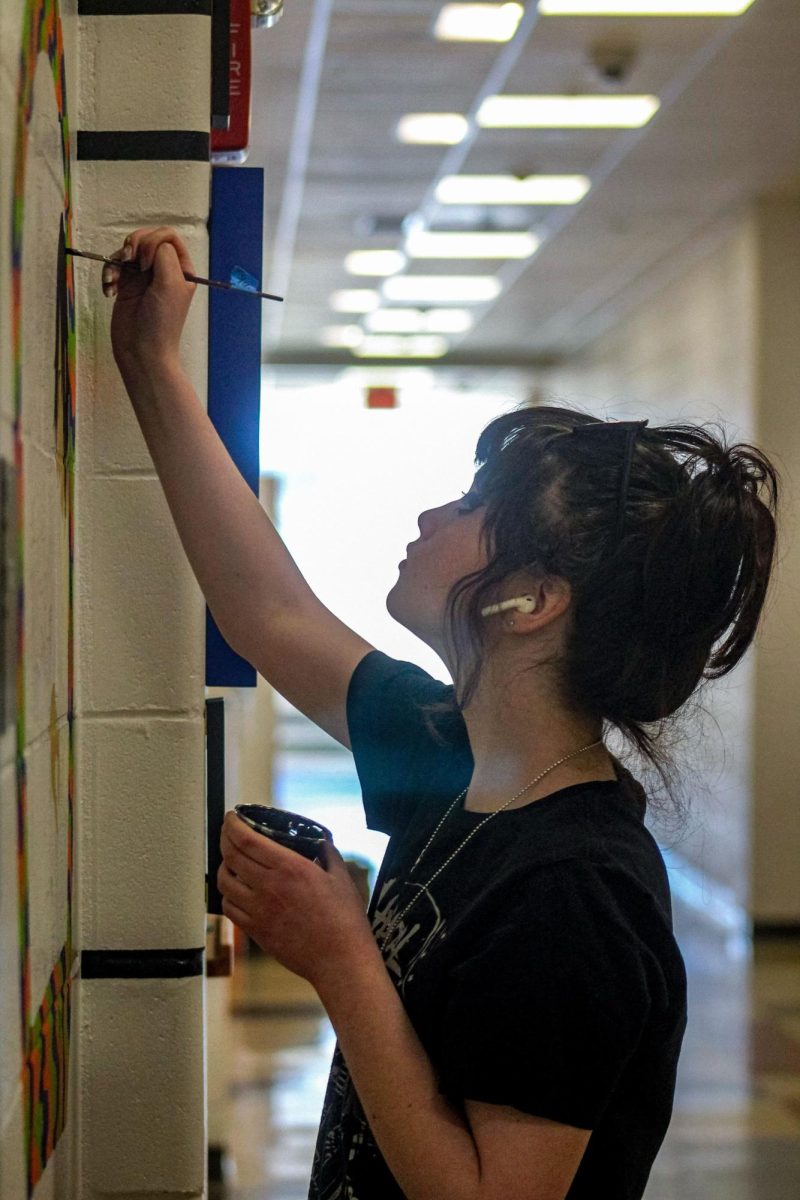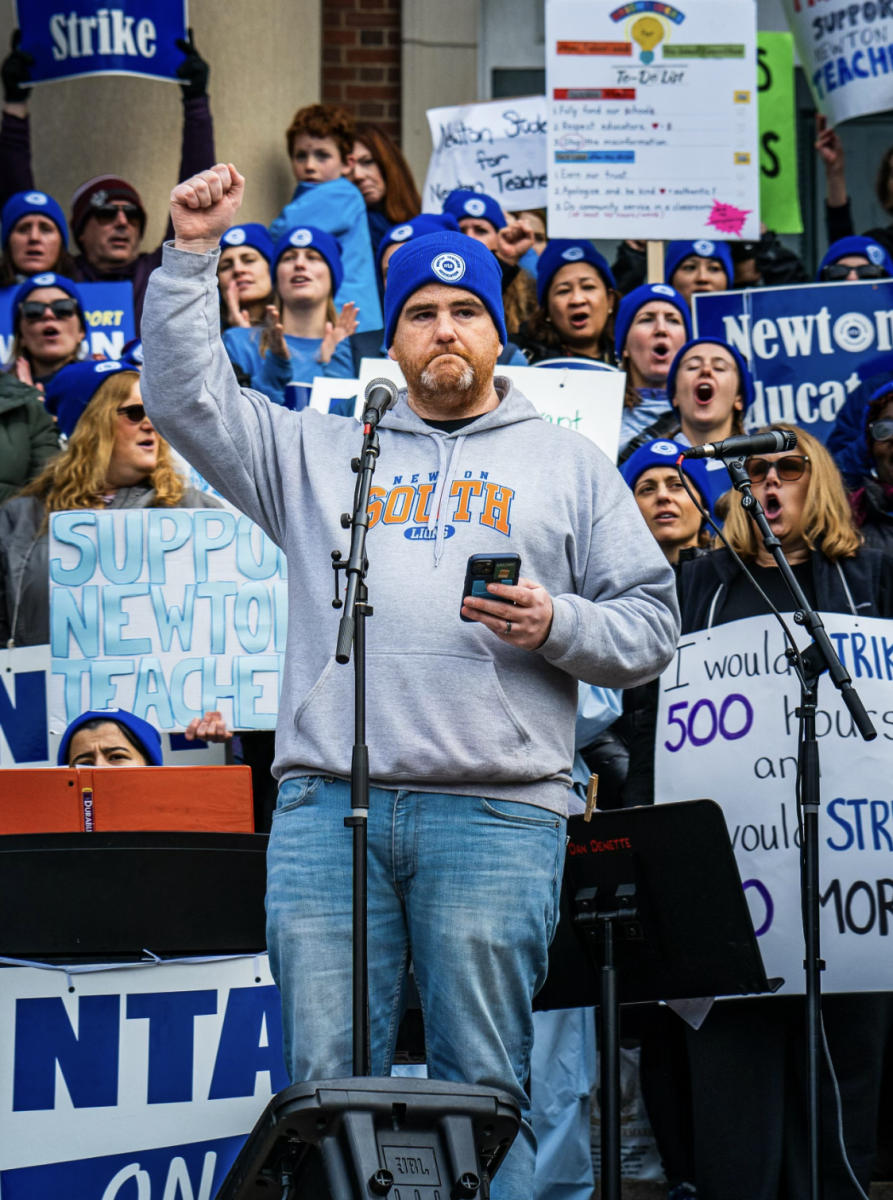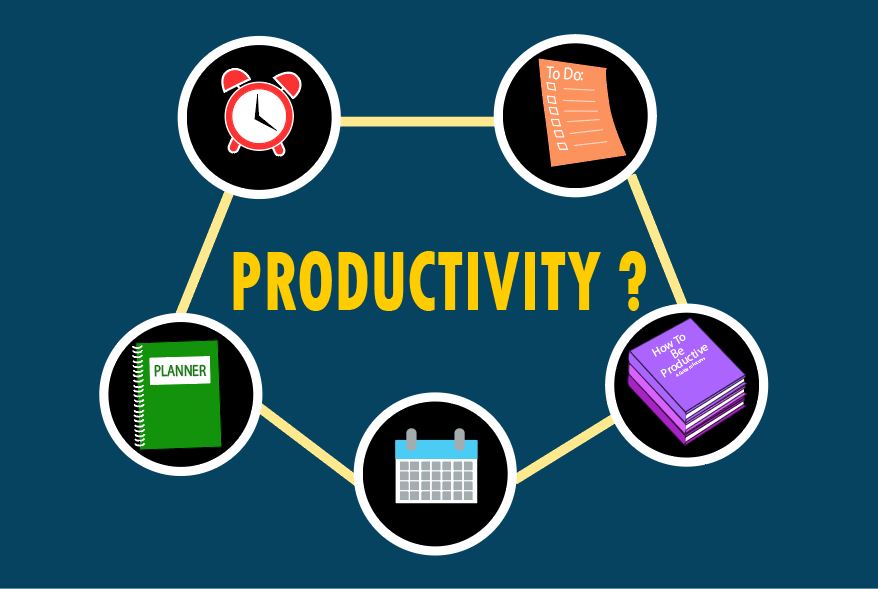(Graphic by Joelle Sugianto)
Twice every week, I watch videos posted by one of a sea of so-called “study YouTubers,” gurus with uber-neat handwriting; uber-list-loving organization; and, ultimately, a seemingly uber-productive lifestyle. This particular YouTuber happens to end her videos with an all-too-intimidating catchphrase, delivered cheerfully: “have a productive week!”
Not “happy,” not “fun,” not even the unoriginal “great” or “amazing.” No, “productive.”
In schools, in offices, and even online, productivity appears to have snowballed into a virtually ubiquitous presence. Study YouTubers and their productivity salutations form only the tip of a growing iceberg of books, articles, and software offering a bevy of productivity services. Fast Company advertises “15 Habits That Will Totally Transform Your Productivity.” Entrepreneur pipes up with “4 Productivity Tips That Changed My Life This Year,” and the Apple App Store boasts productivity apps in the thousands, tempting its users: “Master Your Workday.” At school, it’s been drilled into students’ consciousnesses that we should “work smarter, not harder,” a message which also translates to workplace cultures—Lifehack offers “10 Ways to Boost Your Productivity at the Office.” Even celebrities jump in to tout productivity systems: Oprah, for instance, employs a “radical focus” method which she uses to “run her multibillion-dollar empire,” according to a Medium article.
Superficially, this increasing emphasis on productivity is not only reasonable, but advantageous. Productivity is simply defined as work efficiency—output per unit time—which initially appears to be an area we should seek to maximize. But what’s hidden from a cursory glance at this culture is that productivity has become unhealthily warped, playing a disproportionately prominent role in our work habits. The advice presented by Fast Company, Entrepreneur, Apple, Lifehack, and even our teachers or managers have startlingly insidious effects, too often backfiring and short-circuiting our perceptions of our work.
My own experience serves as a case in point: as a busy high schooler, I’m almost too familiar with the value assigned to productivity when studying and completing homework. At the start of my sophomore year, I downloaded a banquet of apps and heeded a multitude of tips in the hopes of improving my schoolwork productivity, planning out my work with digitally manipulatable checklists, time allotment systems, and handfuls of color-coded tabs. Yet the more I outlined my productivity, the less I actually worked on my history essay, every tick of the timer exacerbating my stress and exhaustion. Ultimately, I lost sight of my work itself, and the timer, not my essay, came to occupy my entire horizon.
Of course, it must be said that not all productivity methods disappoint—too few checklists can prove worse than too many. I’ve sworn by a handy list-keeping app-meets-website, Google Keep, for almost a year, and the organizational capabilities I’ve procured certainly beat out the jumbled inefficiency I’d face otherwise. But, after a few months and a number of particularly stressful evenings wrangling productivity techniques, I came to realize that despite the apparent wholesomeness of emphasizing productivity, a heavy focus on it often ends up compounding the issues it was meant to solve.
For one, the productivity tools we’re presented are routinely idealistic or unfeasible, skewed to either the overly simplistic or overly complex ends of the “Productivity System Spectrum.” Bullet journals, for instance, are infamously complicated, with inspiration boards featuring mind-boggling spreads of color-coded and sticker-labeled calendars. My sophomore year recycling bin full of bullet journal papers and residual headaches are evidence enough of the harm of such overcomplicated planning. As The Guardian’s Oliver Burkeman explained, “The truth is that more often than not, techniques designed to enhance one’s personal productivity seem to exacerbate the very anxieties they were meant to allay.” The resulting stressful, self-defeating spirals only ever harm our work, featuring more clockwatching than working, more listing than thinking, and more feeling trapped in a straitjacket of time than letting loose our creativity.
On the simplistic end of “The Spectrum,” productivity suggestions operate under the ruse that our lives are elementary enough to be encapsulated in a single solution. Entrepreneur has “The Only Productivity Tip You’ll Ever Need.” So does Medium, with “The only productivity tip you need to remember.” And, according to The Muse’s “The Only 3 Productivity Tips You’ll Ever Need,” there actually exist three such tips. These single pieces of advice are akin to one-size-fits-all clothing: short-sighted and disappointing in that they far too often do not fit all. How can a single tip possibly be the only one that any of us will ever need?
Even more worrisome is that our fixation on productivity can begin to harm our very enjoyment of our tasks. As we become shackled to productivity, once-agreeable work develops a bitter, unpleasant flavor. In essence, our emphasis on productivity is akin to alcohol—seemingly palatable and effervescent, but with the dangerous potential to backfire.
Yet, despite everything problematic with our fixation on productivity, it’s only understandable that we buy into the messages of this culture. In a fast-paced world offering us everything and nothing, we crave the sense that we can have everything by doing nothing. This productivity culture and its systems tantalizingly assure us that they can do just that: bring us vitality (“Boost Your Energy & Increase Your Productivity with These 6 Tips,” by HuffPost), unlock time (“20 Productivity Hacks That Can Magically Stretch Your Day By Hours,” by HuffPost), and even make us money (“6 productivity hacks that tripled my income,” by GrowthLab) through only a handful of tips.
Ultimately, they promise control over an uncontrollable world. In this sense, the productivity advice of the world isn’t just about productivity but is a manifestation of our wider struggles facing the overwhelming—and growing—demands of modern school and workplace life and our wishes for mess-free ways to handle them. Frenzied mornings, coffee-chugging noons, and taxing evenings are central and ubiquitous in the intensifying culture of busyness and overdone workloads. It’s no wonder that we turn to productivity advice in the hopes of simplifying our days, given the stress and disorder we face and the sugared packaging of the advice. Yet these methods almost invariably fail; no productivity technique has ever brought true relaxation and control to my life by boosting my energy, stretching my day, or tripling my income as promised.
No matter how understandable our temptation to adhere to the productivity messages of the world, we must strive to resist that impulse. Our first and most vital step forward, as is often the case, is recognition—recognition that productivity-related tools often pose more harm than not, that no purportedly potent technique can single-handedly tidy up our lives, and that the quality of our work forever trumps our productivity.
With this recognition in hand, we can identify and utilize balanced work systems well-suited to our individual habits and which account for the unique messiness of our lives. They can serve as the antidotes to the drug of productivity: not especially attractive or fun, initially, but effective and true to life. My mother, a professor with a constant load of coursework, grant proposals, and manuscripts, swears by her computer’s built-in calendar system. My father, a professor with the same workload? Scraps of paper and sticky notes. My personal system involves Google Keep lists and a school planner—much preferable to the hodgepodge I had downloaded on my phone and computer a year prior.
In coming to terms with the complexity of our lives and developing individualized approaches to our work, we can begin to shake off the pressure of working smarter, not harder. Our work habits will soon come to seem incredibly plain yet incredibly natural. And yet—unlike everything claimed by productivity YouTubers and their peers—it is at this point that we will have turned the timer from a foe to a friend and reclaimed productivity in its truest, purest form.

























































